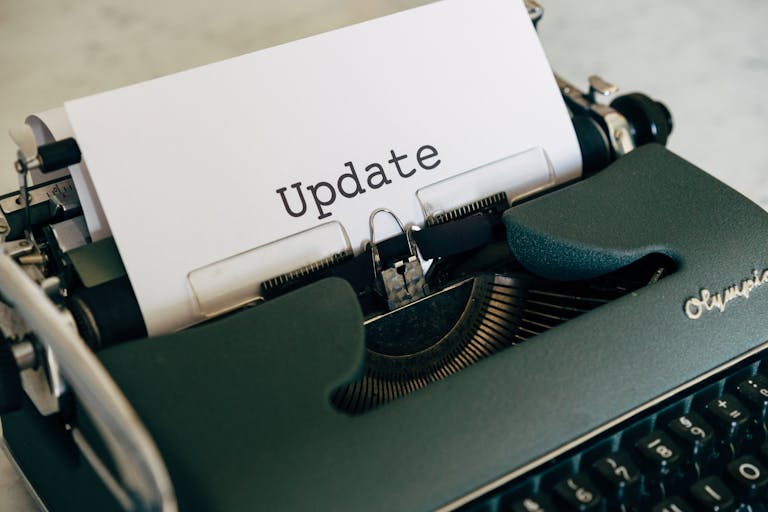Crafting the Perfect Response: How to Answer ‘Tell Me About Yourself’ in a Job Interview
Job interviews can be nerve-wracking, and one of the most common questions you’ll face is, “Tell me about yourself.” This question is more than just an icebreaker; it’s a chance for you to showcase your skills and experiences that make you a great fit for the job. Understanding how to respond effectively can help you make a positive impression right from the start.
Key Takeaways
- Prepare a focused response that highlights your relevant skills and experiences.
- Avoid sharing personal details or negative comments about past jobs.
- Structure your answer using the Present-Past-Future method.
- Tailor your response to align with the specific job and company culture.
- Practice your delivery to ensure confidence and clarity.
Understanding the Importance of the Question

Why Interviewers Ask This Question
When you hear “Tell me about yourself,” don’t think of it as just a simple icebreaker. This question is a key opportunity for interviewers to gauge your self-awareness and how well you can connect your past experiences to the job at hand. They want to see if you can articulate your journey and how it aligns with their needs.
The Impact on Your Interview
Your response can set the tone for the entire interview. A strong answer can lead to more engaging follow-up questions, while a weak one might leave the interviewer unimpressed. Remember, this is your chance to shine and show what makes you unique compared to other candidates.
Common Mistakes to Avoid
- Rambling: Keep it concise. Stick to relevant points.
- Being Generic: Avoid cookie-cutter responses. Personalize your story.
- Ignoring the Job Description: Tailor your answer to highlight experiences that matter for the role.
Crafting a structured yet personalized introduction is crucial. It’s your moment to showcase your professional achievements and connect them to the desired position. This is how you make a strong first impression and stand out in interviews.
Preparing Your Response

When it comes to answering the question “Tell me about yourself,” preparation is key. You want to make sure your response is not only engaging but also relevant to the job you’re applying for. Here’s how to get ready:
Researching the Company and Role
- Understand the company’s mission: What are their goals? How do they operate?
- Know the job description: What skills and experiences are they looking for?
- Identify the company culture: What values do they prioritize?
Identifying Key Skills and Experiences
- List your top skills: What do you excel at that aligns with the job?
- Highlight relevant experiences: Think of past roles or projects that showcase your abilities.
- Connect your background to the role: How does your experience make you a good fit?
Structuring Your Answer
- Present: Start with your current role and responsibilities. What do you do now?
- Past: Share your career journey. How did you get here?
- Future: Explain why this job excites you and how it fits into your career goals.
Remember: You have a limited time to make a great first impression. Practice your response so it flows naturally and feels authentic.
By preparing effectively, you can turn this common interview question into a powerful opportunity to showcase your strengths and fit for the role. And if you need extra help, consider using a free AI-driven tell me about yourself coach to refine your response!
Crafting a Compelling Elevator Pitch
What to Include in Your Pitch
When crafting your elevator pitch, focus on these key elements:
- Present: Start with a brief overview of your current role. What do you do? What are your main responsibilities? This sets the stage for your story.
- Past: Connect your past experiences to your current role. Highlight relevant jobs or projects that shaped your skills.
- Future: Share your career aspirations. Why are you excited about this job? How does it fit into your long-term goals?
Examples of Strong Elevator Pitches
Here are a few examples to inspire you:
- “I currently manage digital campaigns for [Company Name], where I’ve grown email engagement by 15% and led a product launch that added $250,000 in revenue last quarter. Before this, I worked at [Previous Company], optimizing ad spend for multiple clients and boosting ROI across three key accounts. I’m excited about this role because it allows me to apply my expertise in campaign strategy to expand your market presence.”
- “I’m a software engineer with three years of experience in backend development at [Company Name], where I’ve streamlined server performance, reducing downtime by 20%. Before that, I worked on a project at [Previous Company] that increased database efficiency for 50,000+ users. I’m drawn to this role because it offers the chance to develop scalable solutions while working on cutting-edge technology.”
- “I’ve been in customer service for five years, specializing in high-volume support environments. At [Company Name], I maintained a 97% satisfaction rate across 15,000 interactions and introduced a new ticketing system that cut response times by 40%. I’m eager to bring my skills to your team and ensure every customer interaction reflects your brand values”
Practicing Your Delivery
Practice makes perfect! Here’s how to nail your delivery:
- Rehearse: Go over your pitch multiple times until it feels natural.
- Record Yourself: Listen to your tone and pace. Adjust as needed.
- Get Feedback: Share your pitch with friends or mentors and ask for their thoughts.
Remember, your elevator pitch is your chance to shine. Own your journey and present it confidently. This is your moment to stand out and show what makes you unique!
Tailoring Your Answer to the Job
Aligning Your Skills with Job Requirements
To make a strong impression, you need to connect your skills directly to the job you want. Here’s how:
- Read the job description carefully. Identify the key skills and experiences they are looking for.
- Match your background with these requirements. Highlight relevant experiences that showcase your abilities.
- Use specific examples to demonstrate how you’ve successfully applied these skills in the past.
Highlighting Relevant Experiences
When discussing your experiences, focus on those that are most relevant to the position. Consider these points:
- Share achievements that align with the job’s goals.
- Discuss projects or roles that required similar skills.
- Mention any awards or recognition that relate to the job.
Demonstrating Cultural Fit
Employers want to know if you’ll fit in with their team. Here’s how to show that:
- Research the company culture and values.
- Share personal values that align with the company’s mission.
- Talk about how you’ve thrived in similar environments before.
Remember, your goal is to create a connection between your past and the job you want. Tailoring your answer not only shows you’re a good fit but also that you’re genuinely interested in the role.
By following these steps, you’ll craft a response that resonates with interviewers and sets you apart from the competition.
Key Takeaway: Tailor your answer for the role and company to make a lasting impression!
Handling Variations of the Question
Recognizing Different Forms of the Question
When you hear, “Tell me about yourself,” it’s not always that straightforward. Interviewers might ask it in different ways. Here are some common variations:
- “I’ve got your resume here, but can you tell me a bit more about yourself?”
- “Walk me through your resume.”
- “I’d love to hear more about your journey.”
- “Tell me a little about your background.”
- “How would you describe yourself?”
- “Share something about yourself that’s not on your resume.”
These variations are just different ways of asking the same thing. They want to see how you present yourself and what you choose to highlight.
Adapting Your Response Accordingly
To handle these variations effectively, you need to:
- Stay calm: Recognize that it’s the same question in a different form.
- Tailor your answer: Adjust your response based on the specific wording. For example, if they ask about your journey, focus on your career path.
- Be prepared: Practice your response for different variations so you can answer confidently.
Maintaining Consistency Across Answers
No matter how the question is asked, your core message should remain consistent. Here’s how to ensure that:
- Highlight key experiences: Focus on the same major achievements or skills.
- Use a similar structure: Whether it’s a brief overview or a detailed account, keep your format consistent.
- Stay true to yourself: Authenticity is key. Make sure your answers reflect who you are and what you bring to the table.
Remember, the goal is to make a strong impression. Your answer sets the stage for the rest of the interview, so make it count!
Using Your Answer to Steer the Interview
Setting the Tone for the Interview
Your response to “Tell me about yourself” is your chance to set the stage. Start strong and create a positive vibe. This is your moment to shine and show your personality.
Creating Opportunities for Follow-Up Questions
When you finish your answer, don’t just stop. End with a question that invites the interviewer to engage. For example, after sharing your background, you might ask, “What qualities do you value most in a candidate?” This keeps the conversation flowing and shows your interest.
Showcasing Unique Qualities
Make sure to highlight what makes you different. Share a unique experience or skill that relates to the job. This could be a special project you led or a personal achievement. It’s all about standing out!
Remember, your goal is to turn the interview into a dialogue, not a monologue. The more you engage, the better the connection you’ll build with the interviewer.
Summary
In summary, use your answer to steer the interview by:
- Setting a positive tone
- Creating opportunities for follow-up questions
- Showcasing your unique qualities
By doing this, you not only answer the question but also guide the conversation in a way that highlights your strengths and interests. This approach can lead to a more dynamic and engaging interview experience.
Final Tips for Success
Keeping Your Response Concise
In interviews, time is precious. Aim to keep your answer to about 1-2 minutes. Practice makes perfect! Use a timer to rehearse your response and ensure you stay on track. Here are some tips:
- Focus on key points.
- Avoid rambling.
- Stick to relevant experiences.
Avoiding Common Pitfalls
Many candidates make mistakes that can cost them the job. Here’s what to watch out for:
- Overloading with details.
- Speaking negatively about past jobs.
- Failing to connect your skills to the role.
Leaving a Lasting Impression
Your goal is to stand out. Share something unique about yourself that isn’t on your resume. This could be a personal story or a special skill. Remember, this is your moment to shine!
In the end, it’s all about making a connection. If you can engage the interviewer with your story, you’re already ahead of the game.
By following these tips, you’ll be well on your way to crafting a compelling response to the classic interview question: “Tell me about yourself.”
As you wrap up your journey toward success, remember that every step counts. Don’t hesitate to take action today! Visit our website to discover how we can help you enhance your resume and boost your career prospects. Let’s make your dream job a reality!
Final Thoughts on Your Interview Response
In conclusion, answering “Tell me about yourself” is a key part of job interviews. It’s your chance to show what makes you a great fit for the job. Remember to keep your answer short and focused on your skills and experiences that relate to the position. Avoid sharing too much personal information or repeating your resume. Instead, think about what makes you unique and how you can help the company. With practice, you can turn this question into a strong start for your interview.
Frequently Asked Questions
Can I share personal details when answering this question?
When you answer ‘Tell me about yourself,’ focus on your job journey instead of personal stuff. Talk about your work history and achievements that relate to the job.
How long should my answer be?
Your answer should be short, around one minute. It might seem quick, but you can say a lot in that time. If the interviewer wants more details, they will ask.
What if I don’t have much work experience?
If you’re new to the job market, talk about your education and any relevant experiences. For example, mention internships or projects you’ve worked on.
How do I respond to ‘Why should I hire you?’
This is your chance to show how you can help the company. Mention specific skills or achievements that match what they need.
What’s the best way to answer ‘Tell me about yourself’ if I lack experience?
If you don’t have much experience, focus on your education and what you want to achieve. Start with something like, ‘I just graduated and I’m excited to begin my career in this field.’
How can I make my answer stand out?
To make your answer memorable, include unique details about your journey and specific results you’ve achieved in past roles.
Talk Resumes with Wealth Waggle
Perfect your resume with AI-assisted feedback and tips (using the latest recruiting intelligence).









